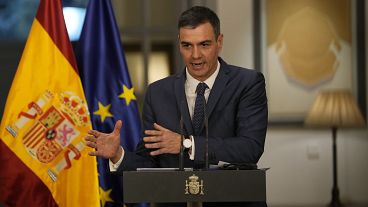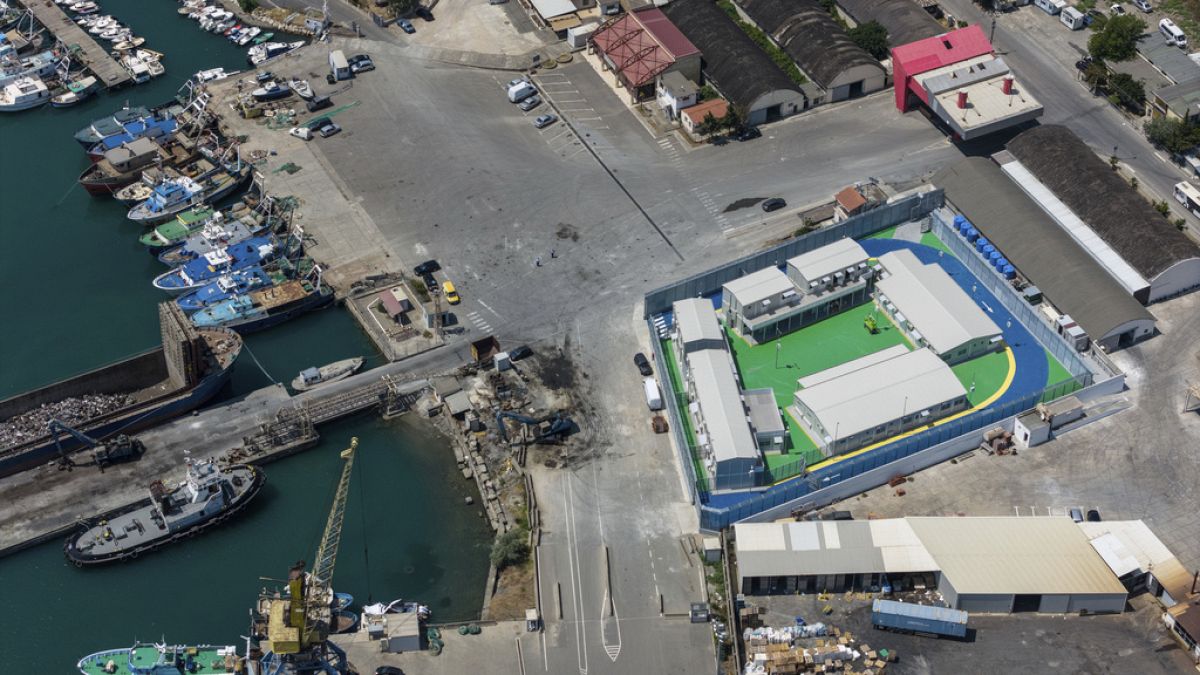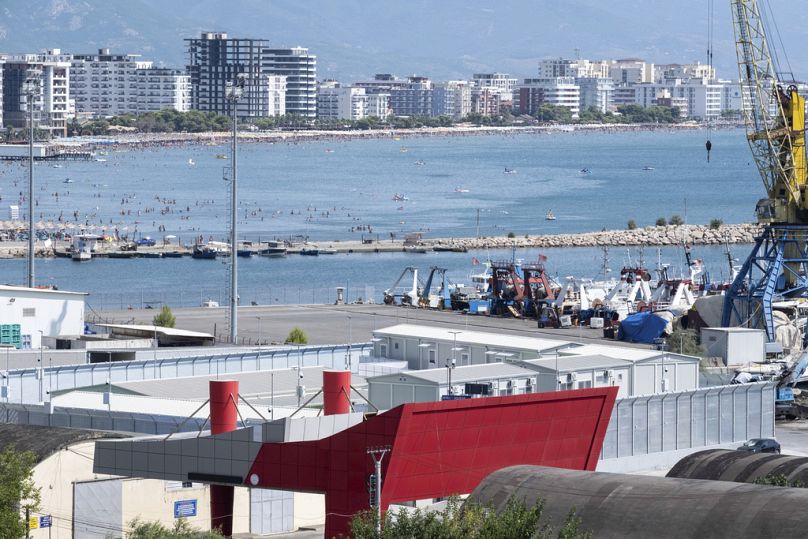Government-aligned MEPs have defended the plan to detain migrant arrivals in Albania rather than Italy, an arrangement NGOs have decried as "cruel".
The construction of two Italian migrant reception centres in Albania that were initially set to open last May is still underway, with no clear opening date in sight — and with Prime Minister Giorgia Meloni now announcing another postponement, the controversial centres are now unlikely to open before the end of this year.
The centres are part of a five-year agreement under which Albania has agreed to host migrant reception facilities funded and managed by Italian authorities.
Forza Italia MEP Flavio Tosi told Euronews that “the opening should take place by the end of the year, in line with certain construction and bureaucratic timelines”. While acknowledging that the upfront costs of the centres are substantial, running to several million euros, the real cost of illegal migration includes prevention measures and the use of the Coast Guard.
"Migrants in Italy cost around €1,000 a month, so the price to pay to open these facilities is irrelevant compared to the overall cost to manage migration as a whole," he said.
The controversial Italian-Albanian plan has faced significant criticism, but the Italian government insists it is a necessary measure to curb illegal immigration and relieve pressure on existing Italian reception centres.
Under the agreement, Albania will host up to 36,000 asylum seekers annually on behalf of Italy while Italian authorities will examine their cases to determine eligibility for repatriation.
Some organisations and opposition parties argue that the plan violates basic human rights. Riccardo Noury, spokesperson for Amnesty International Italy, said his organisation has serious worries about the plan itself and the overall European trend towards shifting the responsibility for processing migrant people's claims.
“We are very concerned about the externalisation of migration policies and how it’s being implemented," he told Euronews. "The plan seems to imply the automatic detention of migrants for long periods, which breaches international law.
"Most of these people will be classified as ineligible for international protection and will be sent back to their countries. This deal is cruel and aims to discourage migrants by violating their rights.”
In response to these concerns, Tosi said that Albania’s EU accession process ensures that human rights will be respected. He also highlighted the importance of strengthening relations with some of the countries of departure, particularly in Africa.
The outsourcing option
The externalisation of asylum procedures is gaining traction among EU member states. Francesco Cherubini, Professor of EU Law at Luiss University, explained that these policies first began gaining traction with the 2015 crisis in the Mediterranean.
“The externalisation of migration policies is a model that has convinced several Member States due to its many advantages," he told Euronews. "It is very effective because it prevents migrants from being directly under the authority of the final European country of arrival, which entails respecting fundamental rights that might pose political consensus issues.”
Cherubini also pointed out that this approach has at least two major problems.
"The first one is that we hand the migrant over to a country like Libya or Turkey with issues being raised when it comes to their human rights," he said. "The other is the cost involved in implementing these policies."
Despite the controversies, the “Italian model” has garnered interest in other countries. Cherubini notes that before Italy, “Great Britain did something similar with Rwanda. There are differences between the two, but in both cases, the level of cooperation with the third country is significant.”
However, the UK's Rwanda policy faced major hurdles in domestic courts, and only a handful of people were sent to the African country on a voluntary basis. The recent change of government in London has seen the plan scrapped altogether.













